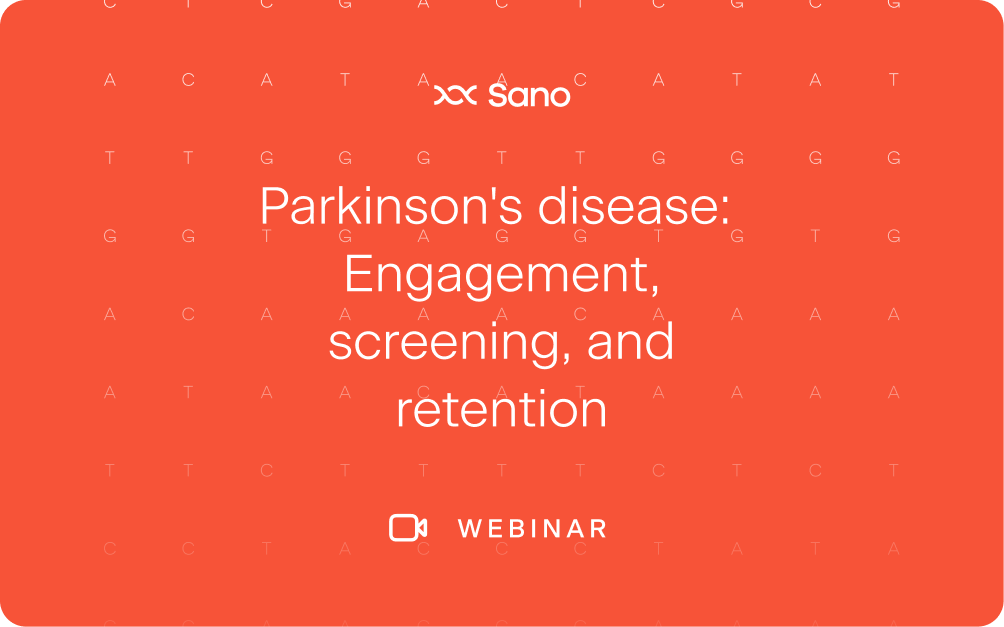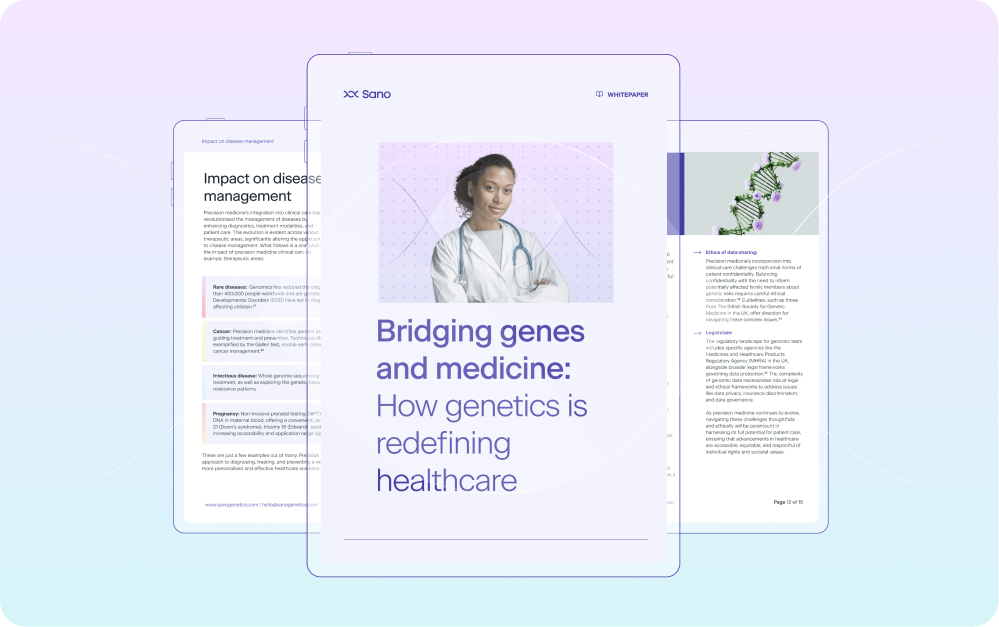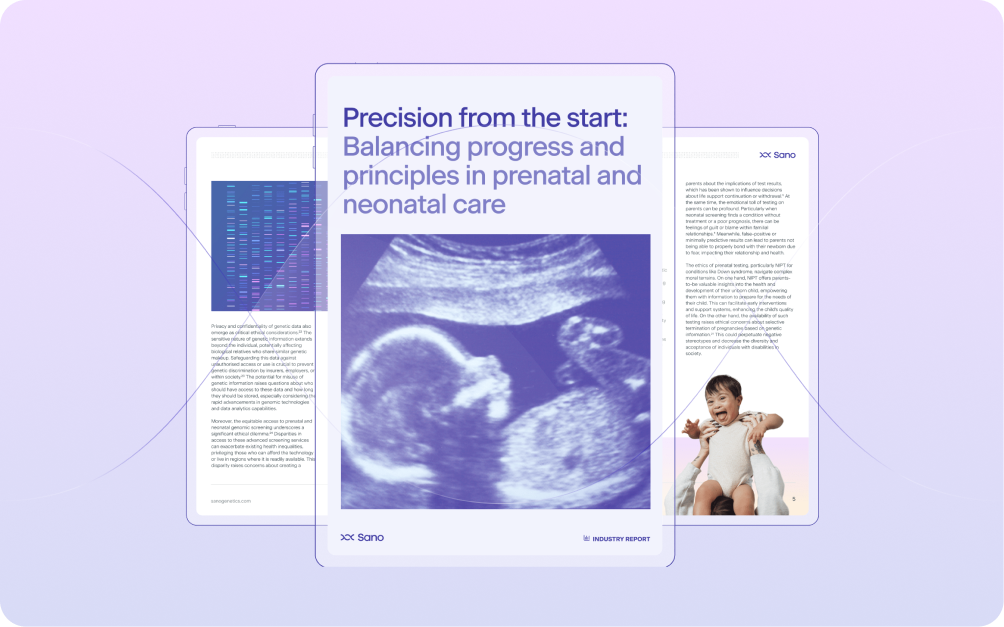Clinical research blog
Explore our blog for insights into the big questions in precision medicine and clinical research.
In this webinar, “Parkinson's disease: Engagement, screening, and retention," Sano CEO and Co-Founder Patrick Short shares a case study of Sano’s work on a genetic Parkinson’s disease clinical trial. He explores the methodologies used for this cutting-edge program, and describes the success of the project.
Our latest whitepaper, "Bridging Genes and Medicine: How genetics is redefining healthcare," examines how the adoption of genetic information is changing clinical practice by requiring a more personalised approach to healthcare. It highlights the importance of this shift, both for improving patient outcomes and for the efficiency of healthcare delivery, painting a picture of a future where treatments are as unique as the patients themselves.
Over the last two decades, following the landmark achievement of sequencing the first complete human genome, a suite of powerful genetic tools has emerged. Gene panel testing, whole exome sequencing, and whole genome sequencing are now pivotal in gathering detailed genetic information. The integration of these tools into neonatal care holds the potential for helpful genetic insight from the moment of birth.
Tissue engineering and regenerative medicine (TERM), integral to the evolution of precision medicine, are making strides in regenerating or repairing damaged tissues and organs. Tissue engineering uses cells, scaffolds, and growth factors to regenerate or replace damaged or diseased tissues, while regenerative medicine combines tissue engineering with other treatments like gene therapy, immunomodulation and cell-based therapy to induce tissue regeneration within the body. When combined with precision medicine's tailored approach, TERM holds immense promise for addressing some of the biggest modern healthcare issues, such as the urgent demand for organ replacements amidst an ageing population.
Last year, Sano CEO Dr. Patrick Short presented a webinar called “Genetics Essentials for Clinical Research professionals.” In it, he explained the fundamentals of genetics in clinical research, explored the trends propelling genetics in drug development, and shared practical applications in drug discovery, development, and delivery. Now, we’re back with part 2, which goes beyond fundamentals and is presented by Sano COO Charlotte Guzzo.
Genomic screening is transforming prenatal and neonatal care, offering new insights and challenges in equal measure. Our latest report, "Precision from the start: Balancing progress and principles in prenatal and neonatal care," dives into these advancements and the ethical dilemmas they present.
This webinar, hosted by Sano CEO Dr. Patrick Short and featuring Dr. Wendy Chung, Dr. Holly Peay, and Kira Dineen, offered a deep dive into the latest advancements in newborn screening, showcasing how cutting-edge genetic technologies are paving the way for a new era in medical care for our youngest patients. The link to the full webinar is here; a brief summary is below for easy reference.
The global battle against COVID-19 has shifted focus from acute infections to the lingering challenge posed by long COVID, a condition where signs and symptoms persist well beyond the initial infection. While most individuals experience a mild reaction to the virus, approximately 10% develop hypoxemic pneumonia, 3% progress to critical illness, and 28% go on to experience Long COVID.
Genetic testing offers a powerful lens through which we can understand and address a wide array of medical conditions, ranging from neurocognitive disorders in children to various cancers in adults. However, the rapid evolution of genomic technologies and the increasing demand for genetic testing bring to the forefront the complexities involved in interpreting genetic results. This issue is becoming increasingly pertinent for both healthcare providers and patients.
This webinar featuring Mina Frost, General Counsel for Sano Genetics, provides an insightful overview of the legal and ethical intricacies involved in precision medicine. Mina expertly explores the complexities of patient privacy, data protection, and the regulatory landscape that govern precision medicine.










